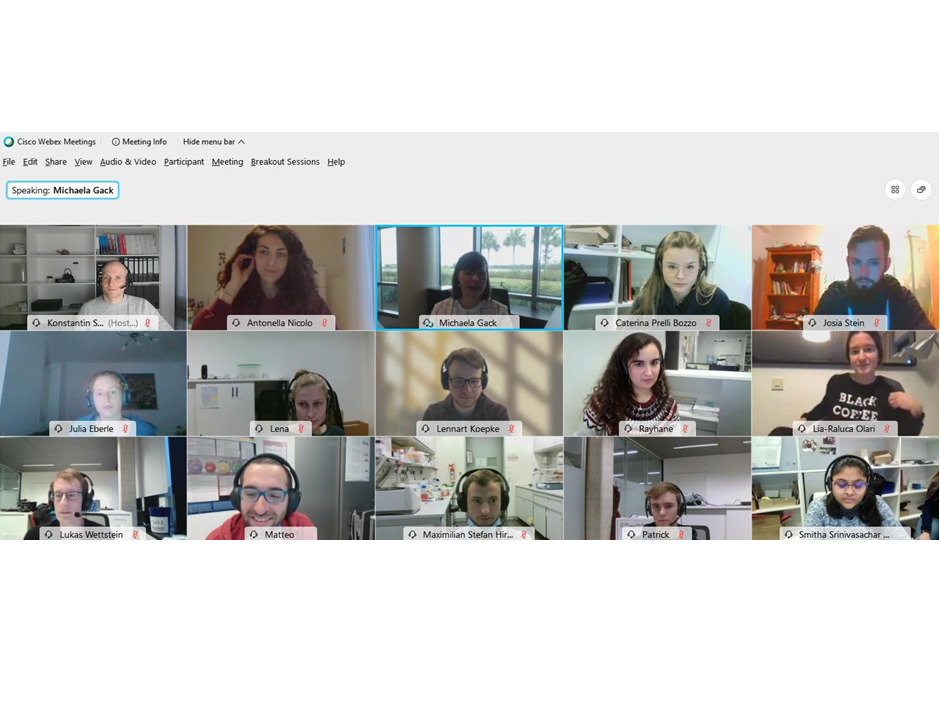The ‘CRC 1279 and beyond’ seminar series goes virtual
We are delighted that the ‘CRC 1279 and beyond’ seminar series is continuing virtually. In fact, two recent interesting virtual seminars have proven that the virtual format still allows exciting scientific discussion, while adhering to the safety guidelines during the ongoing COVID-19 pandemic. In November two external speakers gave insights into the innate antiviral immune response and the respective viral evasion mechanisms:
On November 23rd, Prof. Michaela Gack from the Cleveland Clinic Florida shared her latest findings on ‘Innate immune regulatory circuits and viral antagonism’. She and her team uncovered, that during Herpesviral infections, not the viral RNA products but cellular RNA products are sensed by the innate immune system. These special RNAs, which are derived from cellular pseudogenes, are unshielded during infection and exposed to pattern recognition receptors like RIG-I. Furthermore, she introduced a novel regulatory mechanism of the pattern recognition receptor MDA5, which is activated by modification via ISG15. The current pandemic severe acute respiratory syndrome virus 2 (SARS-CoV-2), however, manages to prevent that activation and thereby escapes recognition by MDA5.
Dr. Marco Binder from the German Cancer Research Center (DKFZ) in Heidelberg presented on the 30th of November focusing on the dynamics of the cell-intrinsic antiviral immunity, especially innate immune activation via the sensor RIG-I. His group has developed innovative approaches to trace and predict key activation steps of RIG-I mediated signaling. Various cascades that eventually lead to the activation of immune effectors are coordinated surprisingly well and accurately respond to a trigger in unison. However, viruses such as Hepatitis C virus and Dengue virus have evolved mechanisms to delay and outrun this immune response to establish infection.
To give advice and promote young scientists, both speakers stayed after the seminar to discuss with students and postdocs of CRC1279. Both shared lessons learned from their own careers, gave advice on how to succeed in academia and answered many questions. A special topic was the career paths of young female scientists and how to do a postdoc abroad, especially in the US.


